It’s part of our job as interpreters here at Colonial Williamsburg to answer questions from visitors. In fact, that’s probably the biggest part of our job (it’s quite literally why we are here). With over 300 acres, 40 historic sites and trades, and two art museums, there’s a lot to see and explore. Some questions we get every day no matter the site are: “Are you a loyalist or a patriot?” “Do you wear that outfit at home?” And, of course, “where’s the closest bathroom?” We know our visitors have a lot of questions, and sometimes they might feel embarrassed asking them. Below are some (very real) queries we get regularly that maybe you didn’t ask last time you were in town because you thought it was silly. It’s ok, you’re not the only one to ask, I promise.
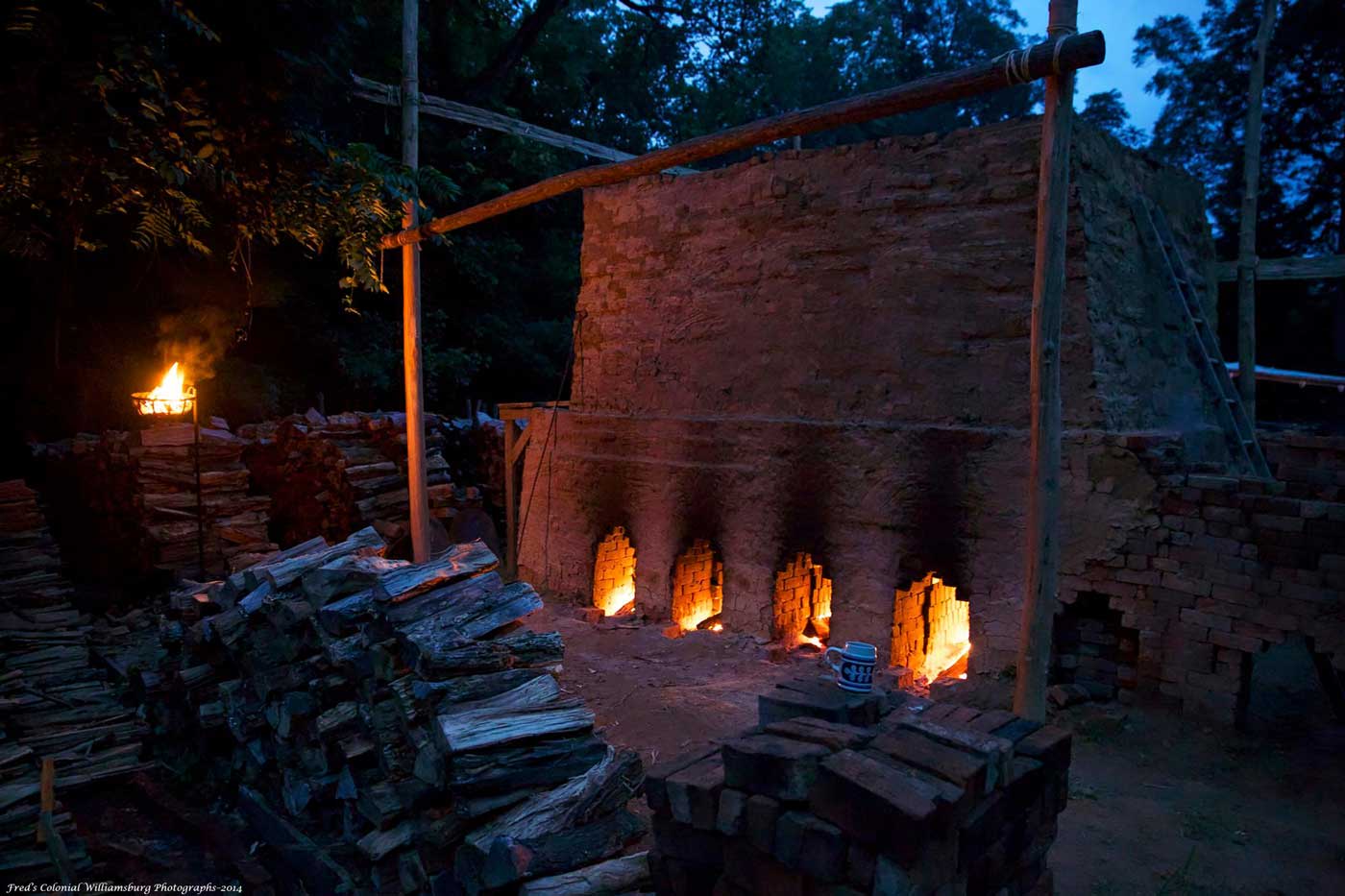
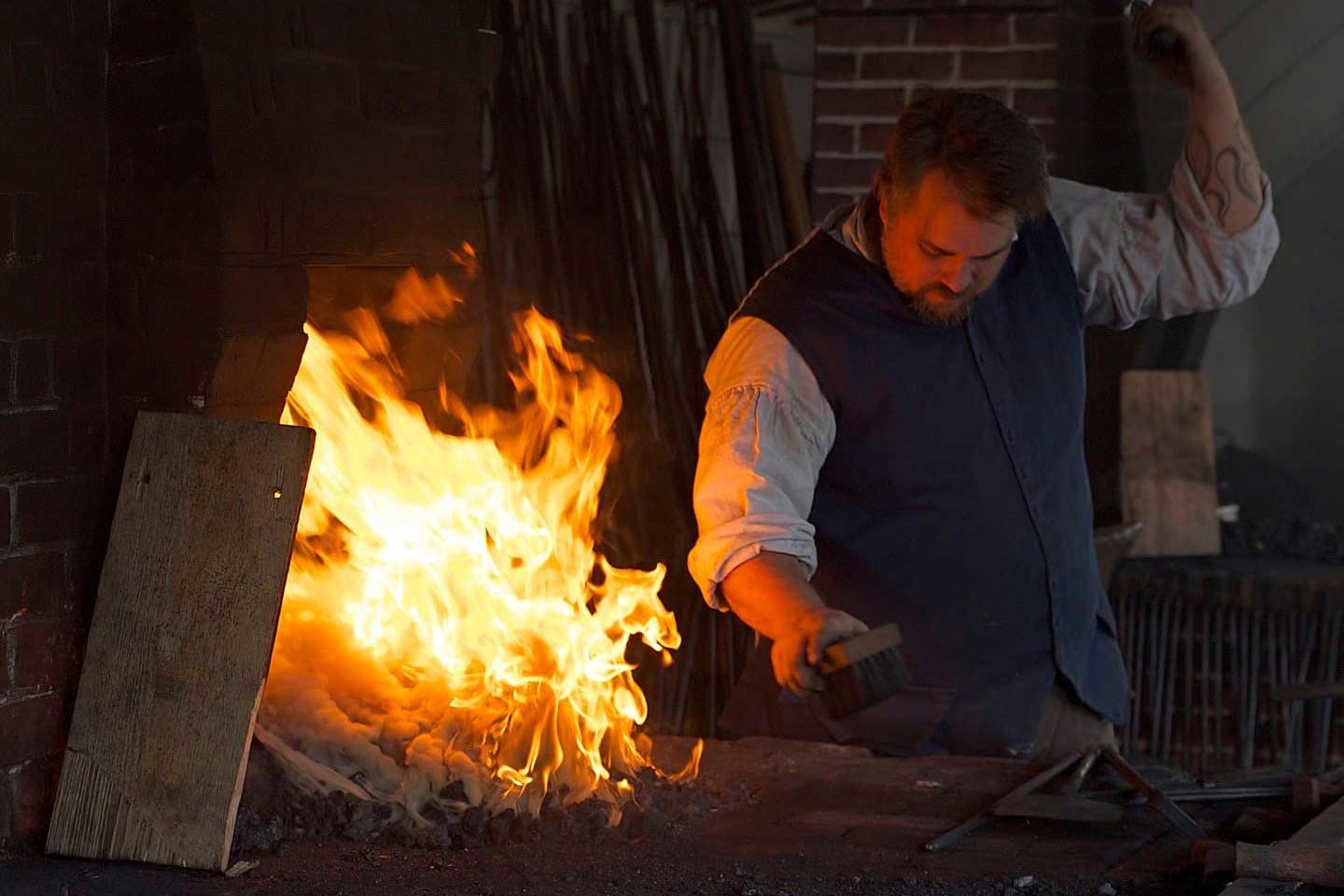
1) “Is that fire real?”
just a bit. We really use fire to cook food, heat some buildings, make dye, forge metal, and all the other things fire can do for you before electric heat sources. Humans have used real fire to survive for a very, very long time, and if you handle it with care, it isn’t as dangerous as you think. But still … don’t touch it.
2) “Do you get a lot of (splinters, burns, cuts, bruises) doing that?”
Short answer: not if you’re doing it right.
The best part of tools that don’t plug into the wall is that YOU are in control of its power and what it does. Sure, sometimes we get hurt, but it’s generally when we weren’t properly handling our tools or materials. General guidelines to not getting hurt in a trade shop: if it’s hot, don’t touch it. If it’s not food, no taste-testing. If it’s heavy, ask for help. And remember: it takes a really long time to cut off a finger with a handsaw…
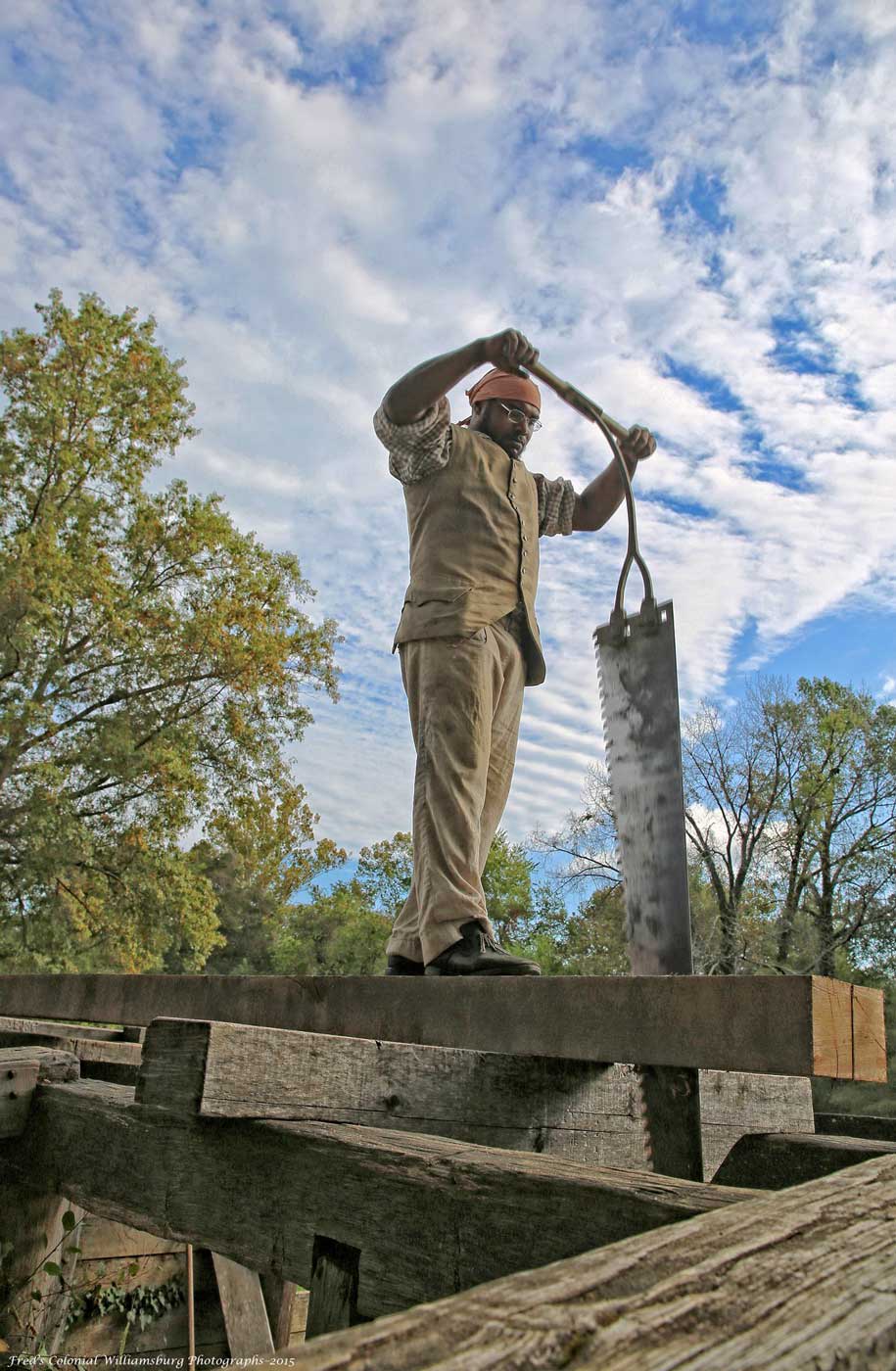
3) “Do you live here?”
Some people do, yes. But that question usually means, “do you live like a colonial person all the time?” No, we don’t. Even if you live in the historic area, your house has electricity, running water, internet, and everything else your house does. We might wear funny clothes, but we still like Netflix, iPhones, and Amazon. That being said, some of us do fold colonial practices into our lives. Using powder and pomatum to care for hair, traditional soap making, hand sewing, and lots of other skills from the 18th century do make their way into 2020 sometimes. But we still drive a car to Trader Joe’s for Cookie Butter just like you.
4) “Is this your real job?”
Absolutely. The folks you interact with at Colonial Williamsburg are highly trained interpreters and professional historians. This is our actual job that we earn a paycheck for. We know it looks odd, but the folks you meet in town have devoted their career to telling America’s enduring story in the place, in the clothes, using the stuff they did 250 years ago. Some of us are professional actors, some of us skilled tradesmen, some of us professional research historians, all of us devoted interpreters.
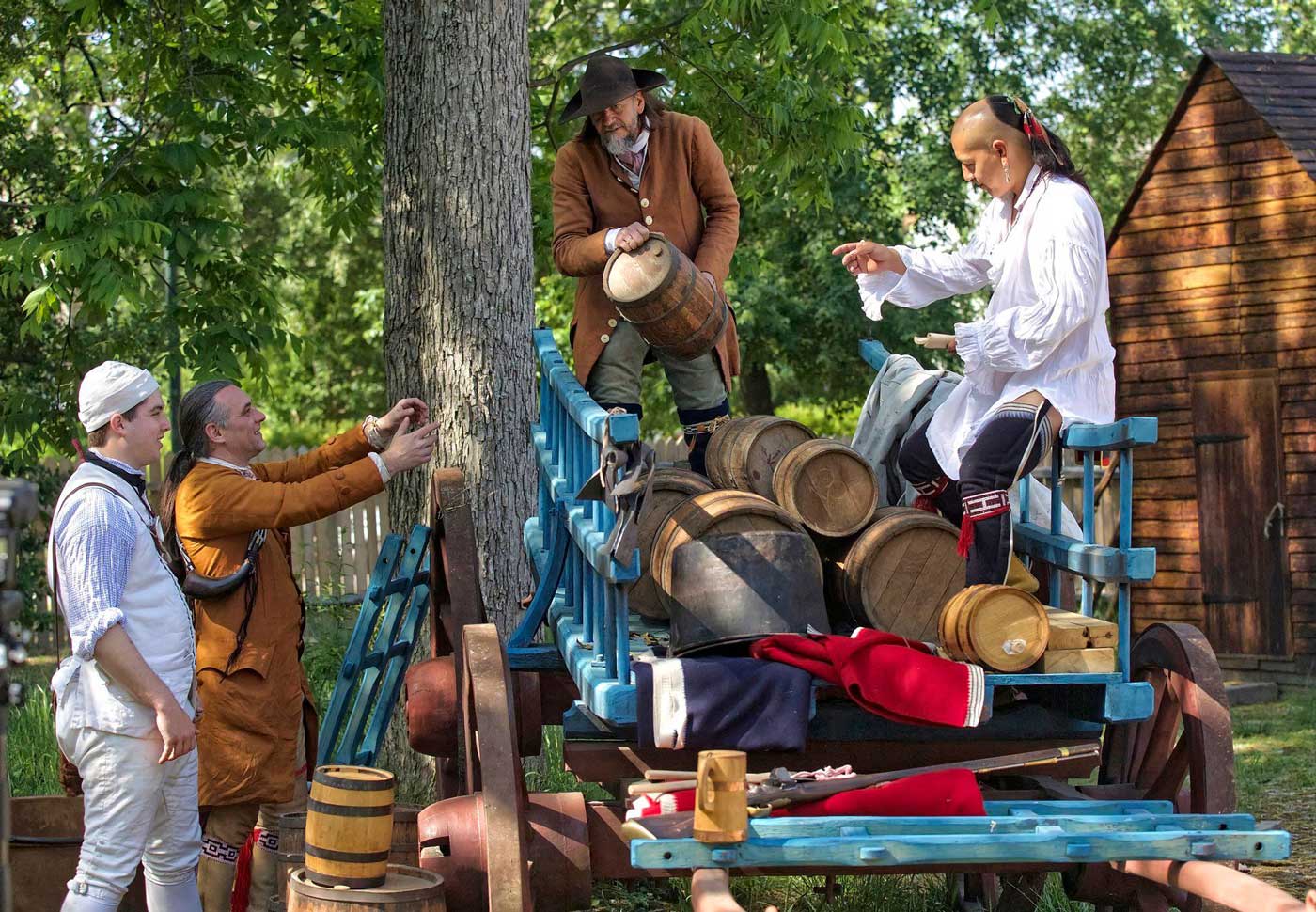
5) “Where do you go to the bathroom?”
Usually this questions means “how did people use the bathroom back then,” and not directly asking us where we answer nature’s call. We understand, it’s difficult to find the right phrasing. People used chamber pots most commonly in the 18th century and wealthy folks had special buildings called privies. Do we as interpreters use those? Absolutely not. We use a modern bathroom and wash our hands thoroughly for at least 20 seconds like the responsible adults we are.
6) And finally…”Are you hot in that?”
The answer is yes. It’s always yes.
If it’s 95 degrees outside, we’re all hot, not just those of us in costume. If you’re hot, we are too. But seriously, it’s not as bad as you might think. We are wearing natural fibers like linen that are far more breathable and comfortable than modern synthetics. Am I sweating? Absolutely. The sweat on my forehead is just as real as the fire, y’all. But we know what we got ourselves into. We’re here so you can see, hear, and smell (for better or for worse) what life looked like in Williamsburg in the 18th century.
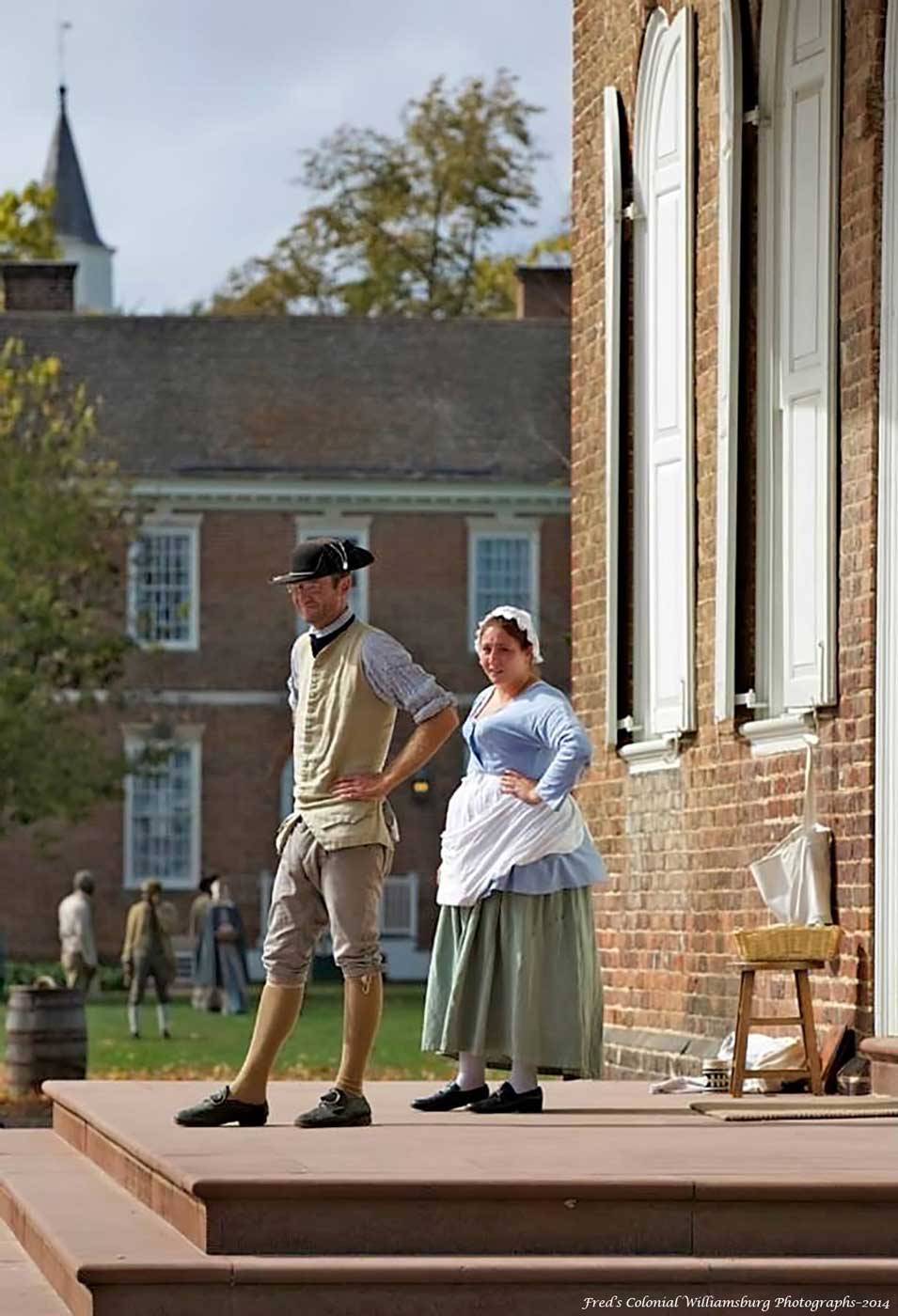
So there you have it, dear visitor: there are no dumb questions. It’s ok to ask us stuff, even if it may seem a little odd. We ask in return that you respect your interpreter and remember that we are people, too, even if we are part of the exhibit. If you have a weird question, it probably means you’ve been paying attention. So keep asking, it’s pretty much our whole thing around here.
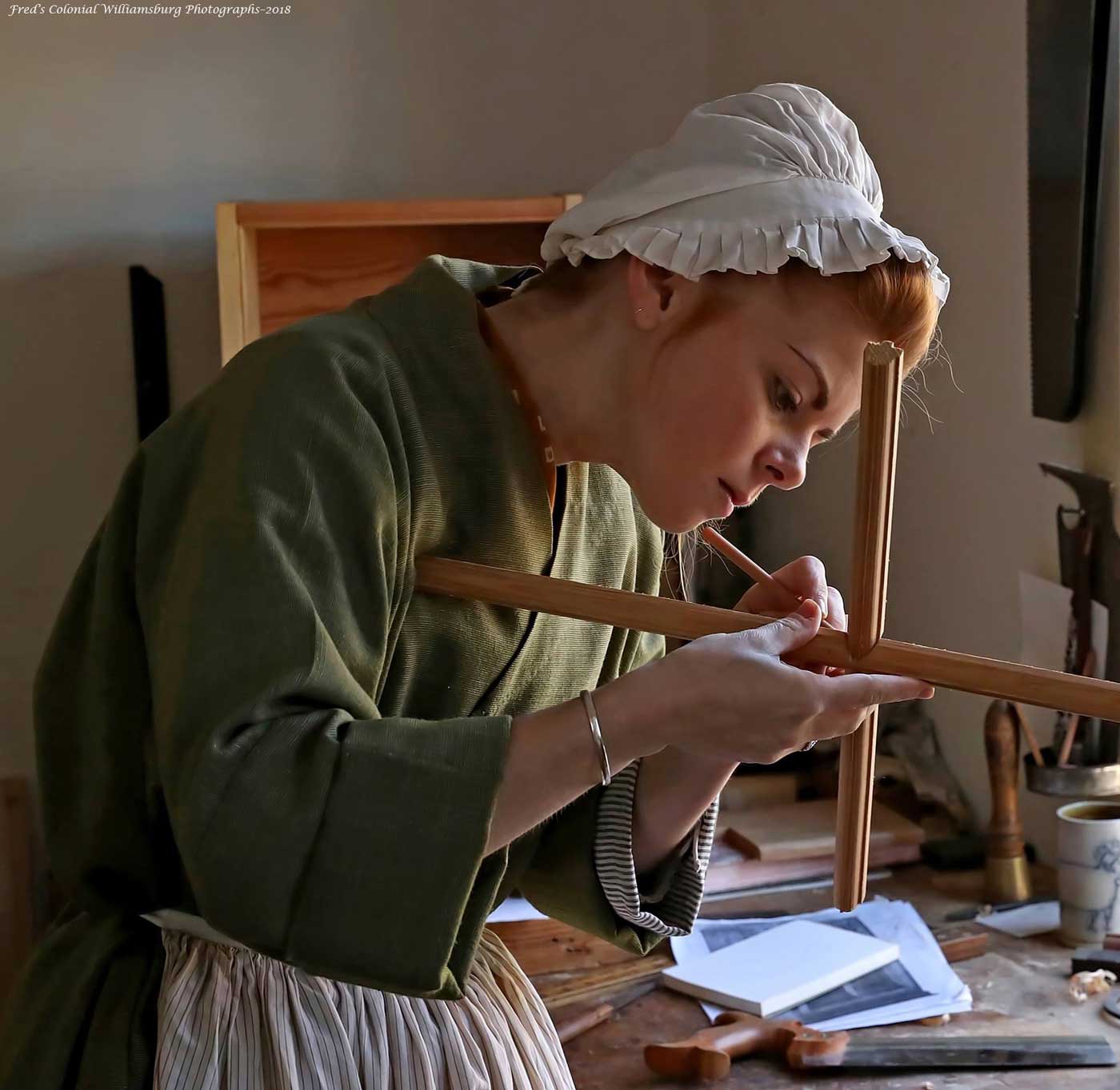
Amanda Doggett is an apprentice Joiner at the Talliaferro-Cole shop on Duke of Gloucester Street. She began her apprenticeship four years ago, but started at Colonial Williamsburg in the products division in 2013. She graduated from Christopher Newport University with a Bachelor’s in History in 2011, specializing in the Second World War. She lives in Seaford with her fiancé Matt, where they enjoy being outside and playing with their coonhound, Chuck.